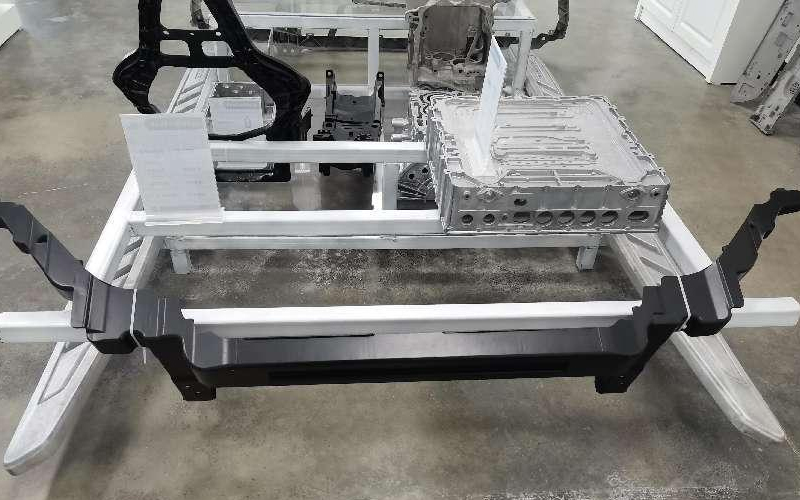Introduction:
Magnesium die casting is a manufacturing process that involves injecting molten magnesium into a die or mold to create complex shapes and structures. It is an innovative and versatile technique with numerous advantages and applications. In this article, we will delve into the advantages of magnesium die casting and explore its diverse range of applications in various industries.
Advantages of Magnesium Die Casting:
1. Lightweight: Magnesium is the lightest of all structural metals, weighing approximately two-thirds of aluminum and one-fourth of steel. This makes it an ideal choice for applications that require weight reduction without compromising on strength and durability. Industries such as automotive, aerospace, and electronics greatly benefit from the lightweight nature of magnesium die casting.
2. Excellent strength-to-weight ratio: Despite its low density, magnesium possesses exceptional strength-to-weight ratio. It offers high strength and rigidity, making it suitable for applications that require structural integrity and load-bearing capabilities. Magnesium die castings are known for their ability to withstand high levels of stress and impact, making them a preferred choice in industries like automotive and defense.
3. Good dimensional stability: Magnesium has low shrinkage rates during solidification, resulting in minimal distortion and excellent dimensional stability. This ensures consistent and precise parts production, reducing the need for post-processing and improving overall efficiency.
4. High heat dissipation: Magnesium has excellent thermal conductivity, allowing for efficient heat dissipation. This property is advantageous in applications where temperature control is critical, such as electronic devices and automotive components. Magnesium die castings can effectively dissipate heat, preventing overheating and enhancing the overall performance and longevity of the product.
5. Enhanced corrosion resistance: Magnesium has natural corrosion resistance properties and can be further improved through various surface treatments and coatings. This makes magnesium die castings suitable for applications in corrosive environments, such as marine and aerospace industries.
Applications of Magnesium Die Casting:
1. Automotive industry: The automotive industry is one of the main beneficiaries of magnesium die casting. The lightweight nature of magnesium helps reduce fuel consumption, improve energy efficiency, and lower emissions. Magnesium die castings are commonly used in engine components, transmission cases, steering wheels, and structural parts. Additionally, its excellent impact resistance makes it ideal for safety components like seat frames and crash structures.
2. Aerospace industry: Magnesium die casting finds extensive applications in the aerospace industry due to its lightweight and high strength properties. It is used in aircraft components such as engine casings, gearbox housings, brackets, and interior parts. The reduced weight of these components contributes to fuel efficiency, extending the range and endurance of aircraft.

3. Electronics industry: The electronics industry benefits from magnesium die casting due to its excellent electromagnetic interference (EMI) shielding capabilities. Magnesium die castings are used in electronic devices like laptops, smartphones, cameras, and tablets to provide EMI shielding, thermal management, and structural support.
4. Medical industry: Magnesium die casting is making inroads in the medical industry due to its biocompatibility and lightweight properties. It is used in orthopedic implants, surgical tools, and medical equipment. Magnesium alloys have shown promising results in bone fixation applications due to their biodegradability and ability to promote natural bone growth.
Conclusion:
Magnesium die casting offers a multitude of advantages, including lightweight, excellent strength-to-weight ratio, dimensional stability, high heat dissipation, and enhanced corrosion resistance. These properties make it a preferred choice in various industries such as automotive, aerospace, electronics, and medical. As technology advances, the demand for magnesium die castings is expected to increase, further expanding its applications and driving innovation in manufacturing processes.
-

- Magnesium alloy bike parts & componenets for kid’s push bike
-

- Mangensium alloy die-casting Thixomolding helmet
-

- Dijelovi ljevaonice magnezija Stup upravljača
-

- Magnesium alloy rigid fork for bicycle -customized die casting metal parts
-

- Bicikl Freehub 12/14/16 inča Dječji bicikl Low Rider Bicikli Magnezij aluminijske legure Dječji bicikl 3-8 godina na zalihama
-

- Magnesium alloy die-casting wheel for ebike

 0086-750-5616188
0086-750-5616188 +86 13392089688
+86 13392089688 sales@zhongmei-tech.com
sales@zhongmei-tech.com







